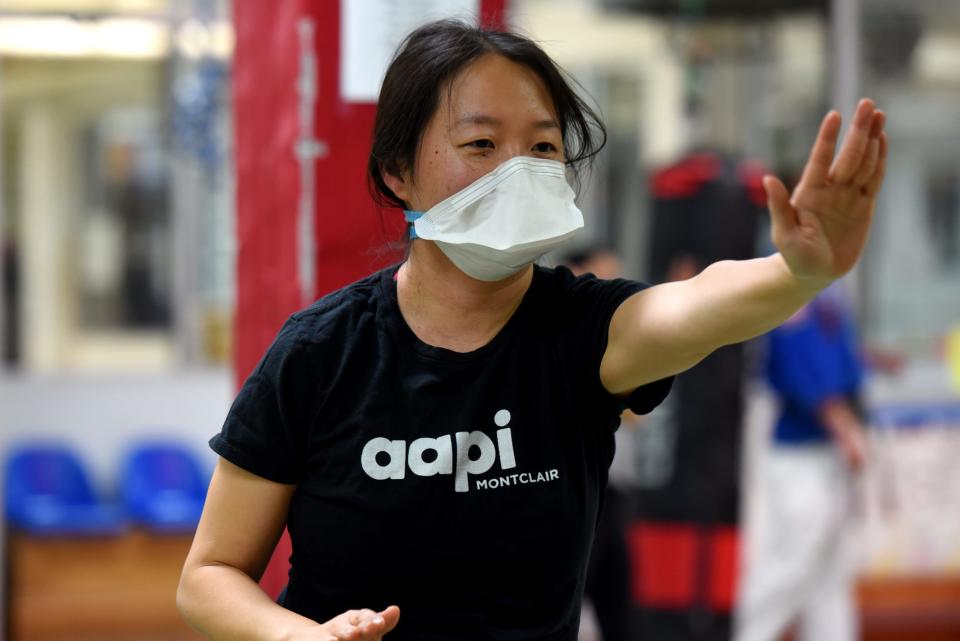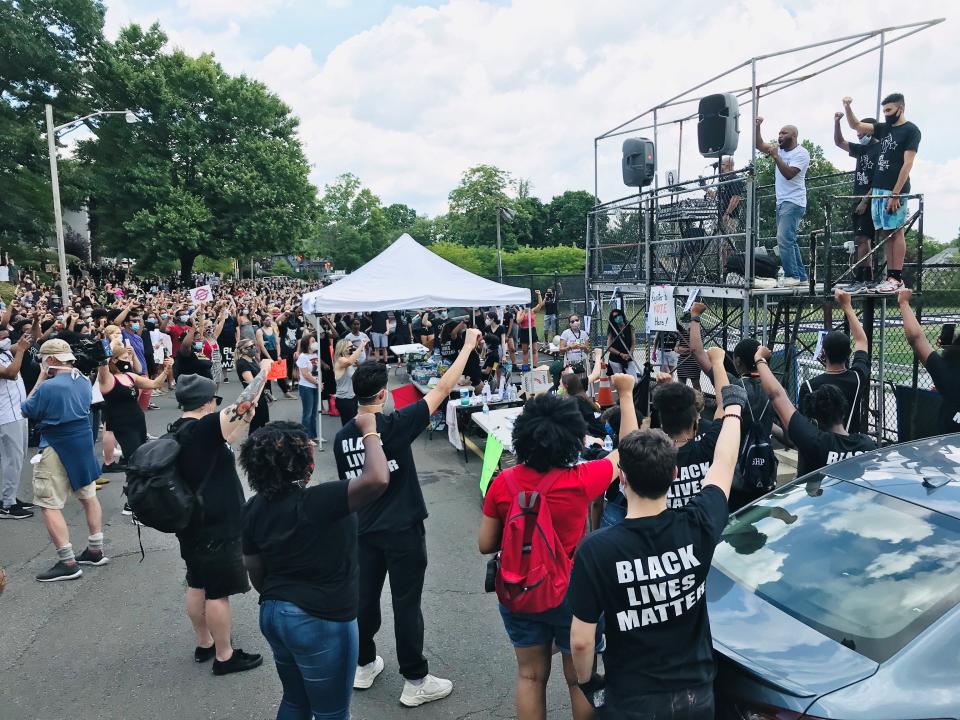'So articulate for a Black person': How microaggressions are more than just slights — Chao
Debra Yoo was once at an office party where colleagues shared their baby photos. She didn't participate, but her fellow workers thought that another Asian colleague's baby photo was Yoo.
"It just shows that people don't pay close attention to Asian features," Yoo said.
She shared her story over a bento box of Korean bulgogi beef one recent hot summer afternoon at a lunch hosted by AAPI Montclair, an advocacy group for Asian Americans. The gathering provided a safe space to vent frustrations with allies and other marginalized people.
About three dozen people opened up about their own experiences being stereotyped.Sharing a table with Yoo, I recalled when another East Asian woman who looks nothing like me worked in my former newsroom. Sources called her Mary, and one of her stories with her byline on it was sent to me by a copy editor.
To the outside world, these little mishaps may be funny. But to the person at the center of the incident, it is far from a laughing matter. These actions, called microaggressions, are derogatory insults to people of color, whether they are intentional or unintentional.
"Microaggressions are the slights that people in marginalized groups experience," said Maxine Davis, an assistant professor of social work at Rutgers University.
There are two types of microaggression: overt and covert. Overt, or microassault, is a direct attack and a racist comment, such as telling an immigrant to "go back to where you came from." Covert is an unintentional comment that really is an insult, such as "you speak so well for an immigrant."
The underlying message is that "you don't belong," Davis said.
Different racial groups face different types of microaggression. For Asians, it's the perpetual foreigner stereotype, said Amber Reed, 40, president of AAPI Montclair. It's an extension of not being fully American, she explained.
Microaggressions aimed at Asian women may seem to those committing them as compliments, but they are often stereotypes of hypersexualization, Reed said. In her youth, for example, she was called exotic. Many Asian women are also typecast as submissive. "We're not seen as full-rounded people," she said.
The combination of race and gender makes Asian women particularly susceptible to sexual stereotypes, said Linda Kow, 54, of Montclair.

Kow recalls offensive incidents decades ago when men would say to her, "I've never been with a Chinese girl before." She brushed off the microaggressions, only to be haunted by them later in life. During the Atlanta spa shootings in March 2021, when a gunman targeted Asian spas, killing eight people, six of them Asian women, Kow hearkened back to the hurt she suffered in her youth.
"You don't realize it until something triggers you, how much it sticks with you" she said.
Asians in rock climbing:Why are Asian Americans exploring the world of rock climbing? It's 'inclusive'
Nowadays, Kow is fighting for her three children, who face microaggressions in school. Stereotypes still exist 30 years after she battled them, she said.
Kow's pet peeve is "where are you really from?" She is still being asked what country she is from, as if she were not American, said the American-born Chinese.
For Black people, the microaggressions come as veiled insults.
"You're so articulate for a Black person" is a common microaggression that Zellie Imani, organizer at Black Lives Matter Paterson, has faced. He's also been told that "you're not like the other Blacks" and "you're so educated for a Black person."
"All this is how much you as a Black person don't fit into the white dominant culture," Imani said.
An interesting difference in stereotyping is how races are treated. When Blacks speak out in a professional setting, they are deemed to be aggressive, Davis said. I told her that no matter how much Asian Americans speak out, we're still typecast as meek and docile.
Asian beauty ideals:Social media are evolving American beauty standards
What should people do if they see a microaggression? Speak up, Davis said. Have a tool belt to draw from. Practice how you would respond if faced with the situation.

"Write down what you want to say," Davis said. "It becomes easier to speak in the moment."
In group settings, speak for the targeted group as they are hurting, Davis said.
Start by being an ally in your innermost personal circle. If your uncle says something like "illegals are ruining the country," correct him. If your elderly grandmother projects racist stereotypes at Thanksgiving dinner, have a talk with her. Don't brush it off, Davis advised.
"You may lose some friends," she said. "But that's OK."
Mary Chao covers the Asian community and real estate. Email her at mchao@northjersey.com.
This article originally appeared on NorthJersey.com: What are microagressions: How people can marginalize others

